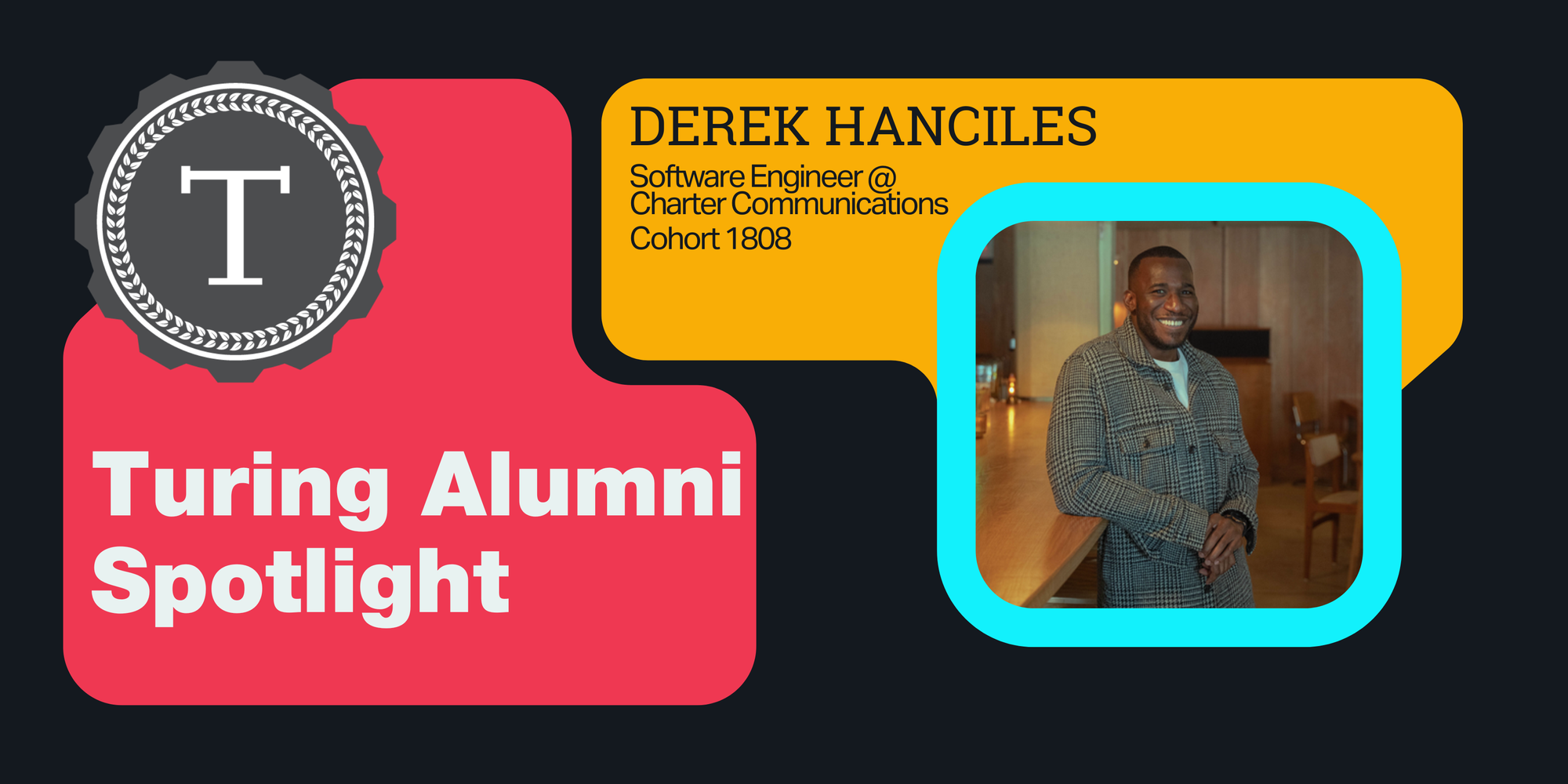Guac is Extra: Chipotle IT to Software Engineer

Derek was one of the first people I met who was going to a coding bootcamp. It was 2018, and I had no interest in technology or anything that wasn’t just “having fun." We met a couple years earlier because he was friends with the Black Actors Guild, a Denver based education and performing arts company of which I was a member. The Blacks Actors Guild ran weekly comedy shows called “Show Ya Teef Tuesday” in a run-down theater we built from scratch in the basement of a church. After the show, with our big performing arts egos, we’d talk about how funny we were and party out front, and Derek, who always looked fresh, would be there, kicking back, smiling big, humoring us and then one day he vanished.
Several months later, I ran into Derek at a party and the man looked tired. After questioning him about his disappearance he let me know that he was enrolled in a code school called Turing. He was learning software development in a dark basement (shoutout to the old basement of Turing) and was spending 65-plus hours a week investing into a new career. After a sip of cheap beer, I patted him on the back and consoled him, “That sounds horrible." I enrolled 2 years later. Derek, however, has always been curious about tech, so while working IT at Chipotle he stumbled upon weekly Try Turing courses. From there his curiosity grew to him enrolling at Turing to now being a Senior Software Engineer at Charter Communications.
Locked In
Derek's journey to discovering software development at Turing began with a growing curiosity for technology while working at the Apple Store from 2011 to 2015. Always interested in new things, on top of dope discounts, he acquired an Apple developer’s license. Later, while working in IT at Chipotle’s corporate office, Derek wandered around downtown Denver and found himself at a Denver-based coding school. Valuing the importance of continuous learning Derek signed up for introductory lessons in HTML, CSS, and JavaScript in hopes to get an idea what a potential career change in software engineering could look like.
In early 2018, after losing his IT job, Derek found himself getting recruited in a Swedish living room. While shopping at IKEA, he coincidentally ran into a former Apple colleague, Jhun de Andres, who was now a student instructor at Turing. He strongly recommended Turing and eventually gave Derek a tour of “the basement," where he was impressed by the collaborative environment. That same day at IKEA, Derek also encountered Louisa, one of the former directors at Turing, further solidifying his interest. Inspired by these random encounters, Derek attended a Turing Try Turing event, which introduced him to front-end and back-end development. Drawn to the design aspects of front-end development, Derek applied and was accepted into Turing, officially starting his software engineering journey in late 2018 back when everyone was crammed in a dark basement.
“He gave me a tour and I was just like, dang, this is what I like to see. People locked in, collaborating, helping each other. Everyone was in the same struggle together, you know what I'm saying? Everyone was trying to help each other.”
80s Montage
Running up the stairs and shadow-boxing Rocky style was what Derek initially envisioned when he was headed into Turing, but was immediately rocked (hehe see what I did there?). Sticking a picture of Koby Bryant on a webpage with random colors together and calling it good for his first project, he was shocked out how talented people were day one. The imposter syndrome was alive and well, but rather than letting that discourage him, he learned a big part of coding: code is cheap, and it's all about trial and error. He embraced the process of iterating, deleting, and starting over – knowing that each step would bring him closer to a new career.
“No question is a dumb question. Put yourself out there, and ask the question and that's going to help you. Rather than just sitting there trying to thug through it … I had to humble myself and be willing to ask those questions."
Rocky wasn’t training alone though and neither was Derek. One of his biggest lessons that he learned while at Turing was asking for help. At first, his pride made it hard to admit when he didn’t fully comprehend something, but over time, he realized that true growth comes from humility and collaboration. By leaning on the people around him in the basement he discovered the power of community. He noted that Turing brought a diverse group of people where they were “all in it together”.
“I’m from Inglewood, California, then grew up in Aurora, Colorado. My life experiences have given me one view of the world, but then I would have class with someone who's been in the military, someone who moved from Chicago the day before we started courses,...or a mother with kids, and we’re sharing perspectives and relating.”
Why Pivot?
Despite his interest in technology and tinkering, Derek was initially skeptical of completely changing the trajectory of his life and "starting over." It wasn’t until he spoke to people and learned their story and experience with Turing did he feel confident to enroll.
“That was the number one thing where it was like, all right, is this legit? Will this be acknowledged by any of these institutions I’m trying to get hired at?”
It was a concern of his and rightfully so. Committing yourself to a full time education is a big leap of faith, but after talking with friends he learned more stories of people going to a bootcamp and getting a job was a real possibility. He recommended using Youtube to get an idea of what a day in the life of a software engineer is like.
Tadpole to Lead
After dropping everything and “doing this” i.e. embarking into the dark depths of the Turing basement Derek landed a job at Charter Communications as a software engineer, and has been there since 2019. The Rocky montage of going from point A, attending Turing, to point B, leveling up and getting a job wasn’t easy but he’s found a lot of enjoyment growing from a junior to a key contributor within the company.
“I'm now the lead for my team and I'm coming up with the architectural plan for new projects. So the combination of starting out as a tadpole and being able to slowly level up, that's what has kept me here.”
Piece of Advice
Derek and I spent a good amount of time reminiscing about our 20s, when staying out late was easy, and our backs didn't ache. It was especially fun to find common ground in our Turing experiences, even though his was in person and mine was remote. It's a scary task to enter that montage of life where everything changes and you have to lock in whether it's like Rocky or not. One piece of advice Derek emphasized was the importance of adopting a growth mindset. Rather than focusing on where you are right now, he encouraged prospective students to think long-term—about where they want to be in one, two, or even five years. He noted the importance of understanding the day-to-day realities of a software engineering role and being optimistic about the journey. Even if you're not where you want to be yet, Derek believes that consistent improvement, even by just 1% every day, can lead to major growth over time.
Leveraging LinkedIn to connect with alumni or other developers, can offer invaluable insight into the realities of the industry. Be patient and have realistic expectations, not everyone who starts a bootcamp will pick it up easily - AKA Derek and I. However, Derek stressed the wake up calls only built our resilience– whether it was handling critical feedback or overcoming self-doubt. His own journey taught him not to take feedback personally, but rather to use it as a tool for growth, which built those muscles in his ability to succeed as a developer.
Calls to Action
Ready to start your journey in software development? Sign up for a Try Turing workshop—or join the Turing cohort that starts December 2.
Be sure to follow us on Instagram, X, and LinkedIn.

